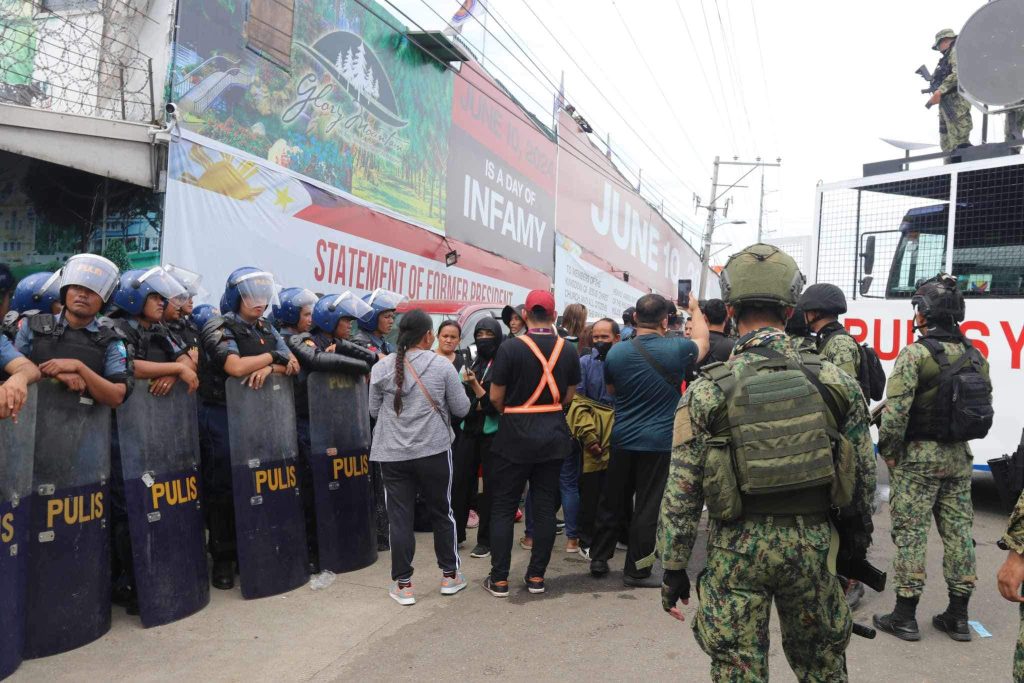
By Atty. Romeo Cabarde Jr.
In light of the situation involving the Kingdom of Jesus Christ (KOJC) and their claims of human rights violations by the Philippine National Police, it is crucial to analyze this through the lens of social contract theory. Social contract theory suggests that members of a society agree to abide by certain rules and norms in exchange for protection and the assurance of their rights. When an entity or group systematically undermines these rights, it risks forfeiting its moral authority to claim those rights when it becomes the target of enforcement actions.
Social Contract Theory and the KOJC
The social contract in any society is based on mutual respect for the rights of all individuals. When a group like KOJC, through its platform Sonshine Media Network International (SMNI), dismisses or undermines the human rights of others, such as during the Duterte administration’s war on drugs or through red-tagging, or even when its principal is accused of trafficking sexual abuse and exploitation, physical violence and punishment, it erodes the foundational principles of this contract. By enabling or even participating in actions that violate human rights, such as endorsing extrajudicial killings or unjustly accusing individuals of being enemies of the state, KOJC has, in effect, breached the social contract.
When the group now claims that its own rights are being violated by the police’s actions in searching for Pastor Apollo Quiboloy, these claims are viewed with skepticism. This skepticism arises because the group’s past behavior demonstrates a selective commitment to human rights, only invoking them when it is personally affected, rather than upholding them consistently for all.
The Irony of Human Rights Claims
The irony here is palpable. During the Duterte administration, the KOJC and its affiliates often disregarded the human rights of others, particularly in their support of the administration’s harsh tactics against suspected drug offenders and political dissenters. Human rights, according to social contract theory, are meant to be universal. When the KOJC now finds itself on the receiving end of state enforcement, its appeal to human rights seems inconsistent with its previous actions and rhetoric.
This situation exemplifies a concept in social sciences known as “false consciousness,” where a group is misled or deluded about its own interests or the nature of the societal structure it supports. The KOJC, by aligning itself with a political agenda that often disregarded human rights, may have contributed to a political hegemony that they now find themselves victimized by. Their sudden realization of the importance of human rights underscores a selective understanding and application of these principles—an application that is more about convenience than genuine commitment.
Lessons in Consistency and the Universality of Human Rights
Despite the past actions of KOJC and its leadership, the principle of human rights remains universal and undiminished. Even those who have previously violated or undermined human rights are entitled to fair treatment under the law. However, there is a significant lesson here: respect for human rights must be consistent. It should not be conditional upon one’s political alignment or loyalty to certain figures like Pastor Apollo Quiboloy or former President Rodrigo Duterte.
The experience of being on the receiving end of enforcement actions might be a hard way for KOJC members and leadership to learn the value of human rights. It presents an opportunity for introspection and a broader appreciation of these rights, beyond their immediate circumstances. A true commitment to human rights involves defending them universally, not selectively.
Conclusion
A Call for Universal Human Rights Adherence. As the situation unfolds, it is crucial for all parties, including KOJC, to recognize that human rights are not tools for political expediency but fundamental principles that protect the dignity of every individual. Moving forward, it is hoped that KOJC, and others who find themselves in similar situations, will advocate for human rights consistently, acknowledging their importance regardless of political context or personal affiliations. True adherence to the social contract demands nothing less.
Romeo ‘Meong’ Cabarde Jr. is a lawyer and a member of the Ateneo de Davao University, leading its Ateneo Public Interest and Legal Advocacy (APILA)
Human Rights, kojc, Pastor Apollo Quiboloy









